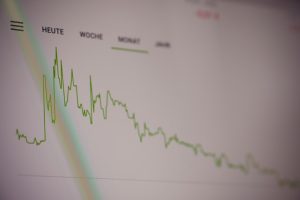The forex industry, also known as the foreign exchange industry, is a global market where currencies are traded. It is the largest financial market in the world, with an average daily trading volume of over $5 trillion. The forex industry is open 24 hours a day, five days a week, allowing traders to buy and sell currencies at any time.
The forex market operates on the principle of supply and demand. Currencies are traded in pairs, and the value of each currency is determined by its demand relative to the other currency in the pair. For example, if the demand for the US dollar increases relative to the euro, the value of the dollar will appreciate against the euro.
The forex industry is made up of various participants, including central banks, commercial banks, investment banks, hedge funds, and retail traders. Each of these players has different motivations for trading currencies, but they all contribute to the liquidity and efficiency of the market.
Central banks play a significant role in the forex industry. They are responsible for setting monetary policy and managing their country’s currency. Central banks can influence the value of their currency by adjusting interest rates, buying or selling currencies, or implementing other measures. For example, if a central bank wants to increase the value of its currency, it can raise interest rates to make its currency more attractive to investors.
Commercial banks also participate in the forex market. They facilitate transactions for their clients, including multinational corporations and governments. Commercial banks also trade currencies for their own account, which can be a significant source of revenue.
Investment banks and hedge funds are active participants in the forex industry. They trade currencies for speculative purposes, seeking to profit from changes in currency values. These players can have a significant impact on the market, especially if they engage in large transactions.
Retail traders are individuals who trade currencies for their own account. They typically trade through online platforms offered by forex brokers. Retail traders can access the forex market with relatively small amounts of capital, which makes it an attractive option for individuals looking to invest in the financial markets.
The forex industry has several advantages over other financial markets. One of the key advantages is its liquidity. The market is highly liquid, meaning that traders can buy and sell currencies quickly and easily. This makes it easier to enter and exit positions, reducing the risk of being stuck in an illiquid market.
Another advantage of the forex industry is its accessibility. The market is open to anyone with an internet connection, and traders can start trading with relatively small amounts of capital. This makes it an attractive option for individuals who want to invest in the financial markets but do not have significant amounts of capital.
However, the forex industry also has its risks. The market is highly volatile, and currency values can fluctuate rapidly. This can lead to significant losses if traders do not manage their risk effectively. Additionally, the forex market is largely unregulated, which can make it more susceptible to fraud and other illegal activities.
In conclusion, the forex industry is a global market where currencies are traded. It is the largest financial market in the world, with an average daily trading volume of over $5 trillion. The industry is made up of various participants, including central banks, commercial banks, investment banks, hedge funds, and retail traders. While the forex market offers several advantages, including high liquidity and accessibility, it also has its risks. Traders must manage their risk effectively to succeed in the forex industry.






